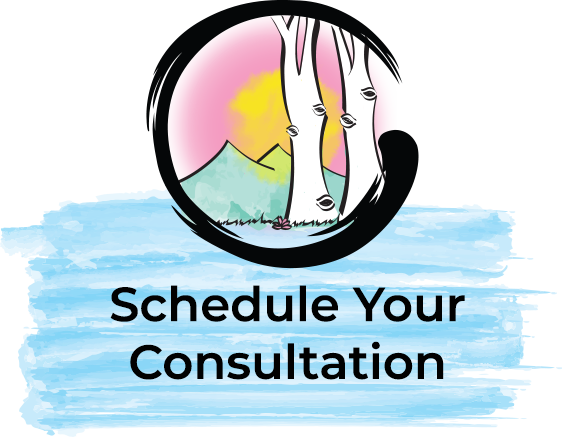By - September 19, 2022
Categories: General
September is Alzheimer’s Awareness month, so it only makes sense that I would focus a blog post on this heartbreaking condition.
Let’s start with what Alzheimer’s Disease is: Alzheimer’s is the most common form of dementia. Dementia refers to changes in the brain impacting a person’s ability to focus, think in an organized way, learn new things, and keep track of their normal routine. Common symptoms of Alzheimer’s include:
- Forgetting recently learned information (more than just occasionally)
- Difficulty performing familiar tasks
- Trouble finding the right words in conversation
- Losing track of time and place
- Poor or decreased judgment
- Problems with abstract thinking (like what numbers are for and how to use them)
- Misplacing items in unusual places
- Changes in mood or behavior (rapid mood swings)
- Personality changes (confused, suspicious, aggressive, fearful)
- Loss of initiative
Western medicine has drugs available that can slow the progress of dementia, but many of these come with fairly severe or even intolerable side effects.
So what options are there?
As always, Traditional Chinese Medicine has its own views and solutions for treating Alzheimers in a way that minimizes the side effects.
From the Eastern perspective, there are two primary causes of cognition issues like dementia: Kidney weakness, and a buildup of Phlegm in the brain.
Kidneys? What does that have to do with your brain?
If you remember from my previous post: INSERT LINK HERE, the kidneys have some important jobs in the body. One of those jobs is to produce Marrow. In Traditional Chinese Medicine, marrow is responsible for nourishing the Brain, Spinal Cord, and Bones. When the Brain isn’t receiving proper nourishment, it can lead to issues with cognitive function. Some other symptoms of Kidney weakness include:
- Dry skin
- Dry eyes
- Vaginal dryness
- Dark scanty urine
- Pale face with flushed red cheeks
- Red peeled tongue
- Rapid pulse
- Fatigue
- Irritability
- Afternoon heat
- Night sweats and hot flashes
- Agitation or panic attacks
- Feeling tired but wired
- Sense of floating
- Being drained
Ok, I guess that makes sense. What about the Phlegm?
Phlegm is a normal part of the body, and is required in our mucus membranes for normal functioning. Problems arise when there is too much phlegm, or it is found in areas it shouldn’t be. When you have a phlegm buildup in your brain, it leads to obstructions that block the normal flow of Qi and Blood. Depending on where the phlegm buildup is, it can cause a variety of symptoms, but some common symptoms include:
- Thirst
- Tightness in the chest
- Insomnia or dream-disrupted sleep
- Agitation
- Dark urine
- A bitter taste
- Lethargy
- Pale face
- Gassy, bloated stomach
Interesting… How does Traditional Chinese Medicine help?
The primary TCM treatments for Alzheimer’s focus on strengthening the Kidneys, and reducing Phlegm. To achieve this, I use a combination of acupuncture and herbal medicine.
Acupuncture
One of the primary purposes of acupuncture is to open up your meridians (the channels that your Qi flows through), to allow it to circulate properly. If your Qi is blocked or deficient anywhere between your kidneys and your brains, acupuncture will allow me to slowly open those channels back up and get your brain working at full capacity again.
Furthermore, current research suggests that stimulating certain points with acupuncture can activate parts of the brain that may help to improve the cognitive and memory-related symptoms associated with dementia.
Herbal Medicine
There are several different herbs that can help with the management of dementia and Alzheimer’s symptoms, depending on the source of your cognitive blocks:
- Thinleaf milkwort – anchors the mind, dispels phlegm, and reduces swelling
- Ginseng – tonifies Qi, strengthens the immune system, tranquilizes the mind
- Poria – induces diuresis to drain dampness, invigorates the spleen function, calms the mind
- Chinese Angelica – tonifies and activates blood, regulates menstruation, relieves pain, moistens the intestines, and relaxes the bowels
- Prepared rehmannia root – nourishes tin and replenishes
The exact combination and dosage of these herbs will depend on the source of your issues, as well as your size and body processes, so it’s essential that you see a licensed practitioner before starting any new herbal regiment.
That sounds great! Are there things I can do on my own though?
Of course! The quality of our Qi and how well our body works is influenced by our diet and environment. Here are some tips to help you increase your kidney function and reduce phlegm:
- Avoid ice-cold beverages
- Eat more high fiber, multigrain foods
- Eat less spicy, greasy foods
- Drink less alcohol
- Exercise regularly
- Balance work with rest
You might notice that for the most part, those are things I recommend almost every post. It turns out that the secret to a healthy body, really isn’t all that secret. It can be difficult though, so give yourself some grace and forgiveness if you’re not perfect.
And if you or a loved one are suffering from Alzheimer’s or any other form or dementia (or if you’re starting to notice any decline in your cognitive functions), please give me a call today! There are treatments we can use to help resolve your issues or lessen your symptoms WITHOUT all the side effects from current Western medications.
Be well.
___
This information is for educational purposes only and is not intended to diagnose, treat or cure any disease or illness. Please consult your healthcare provider prior to the use of this product if you are pregnant, nursing, taking medications or have a medical condition. Individual results may vary.
